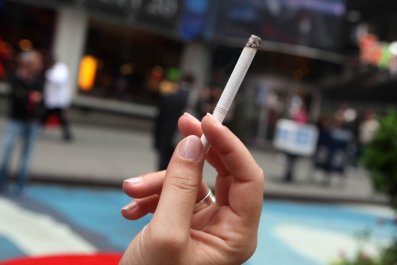Overcaffeinated teens are notorious for being hyperactive, but they might also be dumber and have a higher incidence of substance abuse, personality disorders, and schizophrenia. Hello, Red Bull!
Cafés have always been a favorite teenage hangout, and kids who watch their parents enjoy a cup of joe every morning view coffee as a steamy rite of passage. Soda and energy drink sales have soared in the past decade, as more and more marketers target adolescents for their increasingly caffeinated products.
However, health experts are worried about the long-term consequences. New research from the Swiss National Science Foundation shows that caffeine hampers brain development during adolescence, and the Food and Drug Administration announced in May that it would launch an investigation into the safety of caffeinated drinks. The American Academy of Pediatrics isn't waiting: It recommends that children Just Say No to all energy drinks.
The Swiss study looked at how caffeine affects sleep patterns in prepubescent rats."The brain of children is extremely plastic due to the many connections," says Dr. Reto Huber, of the University Children's Hospital Zurich, one of the study's authors. Huber and the team's research examined the electrical links made between neurons, known as synapses. These connections are finely tuned during adolescence, especially during sleep. "This optimization presumably occurs during deep sleep," Huber explains. Key synapses extend while others are reduced; all this makes the network more efficient and the brain more powerful.
Brain scans revealed that adolescent rats committed less time during the night to deep sleep – a stage thought to be vital for neurological development – after they consumed moderate amounts of caffeine. This sleep disruption correlated with abnormal amounts of neuron synapses.
The authors say further studies are required to see if the same relationship applies to humans; however, prior work has shown that caffeine-drinking teens don't get enough sleep. The Swiss scientists noted in their report, "This might also be of clinical importance, since the critical period of synapse elimination during adolescence is associated with an increasing incidence of psychiatric and mood disorders, such as schizophrenia, anxiety, substance abuse, and personality disorders."























